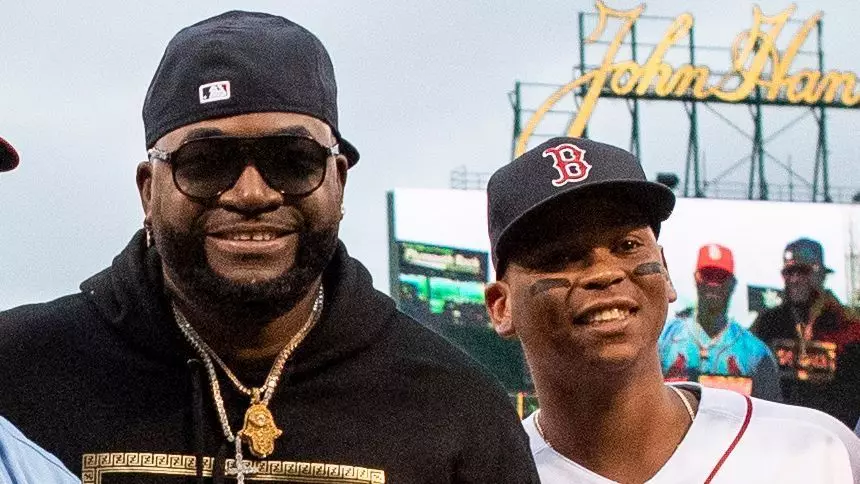The Boston Red Sox find themselves at an intriguing crossroads concerning designated hitter Rafael Devers. Following the injury of first baseman Triston Casas, the team is being forced to reevaluate its lineup strategy. Hall of Famer David Ortiz believes that the power to adapt to this evolving situation should rest squarely with Devers. Ortiz’s insights encourage reflection on autonomy within a team structure, emphasizing the importance of allowing players to dictate their own roles and responsibilities.
Unlike traditional approaches that insist on positional flexibility, Ortiz argues that while team dynamics matter, the individual player’s comfort and willingness to adapt are integral to success. Ortiz’s assertion that players should be allowed to dictate their roles calls into question whether all decisions in professional sports should cater to strategic efficiencies or whether they should prioritize player preferences and growth.
The Road to Being a DH
Initially resistant to switching from third base to designated hitter, Devers faced pressure from the organization during spring training to fill a specific role. This seems like a common narrative across major league sports—a player being slotted into a position based on necessity rather than inclination. However, the merits of the designated hitter role cannot be ignored. Devers, throughout the season, has showcased impressive offensive abilities, boasting a .286 batting average and leading the league with 52 RBIs as of early June. This success illustrates that sometimes what is requested by the team aligns perfectly with a player’s capabilities and growth opportunities.
Yet, this dynamic is not devoid of complexity. Ortiz’s wisdom reminds us that players are not simply cogs in a well-oiled machine; they are human beings with aspirations and fears. Making a drastic shift in role can create tension and uncertainty, leading to questions about confidence and performance. Ortiz’s experience, transitioning to primarily a DH during his career, adds substantial weight to his voice in this discussion. He emphasizes a learning curve, suggesting that the Red Sox should not push Devers hastily into a position he hasn’t trained for adequately.
The Significance of Player Autonomy
The focus on Devers’ autonomy not only impacts his performance but can also have broader implications for team culture and psychological well-being. It’s vital for players to feel they have a say in their career trajectories, and this freedom can translate into better team dynamics. Ortiz’s remarks hint at a time when he navigated similar waters, and the evolution of baseball has since altered perceptions about player roles. The current environment encourages flexibility, yet it often overlooks the unique individual needs of players.
By highlighting Devers’ recent success, it becomes clear that adaptation does not always require immediate upheaval. The Red Sox management should weigh the benefits of a steadfast DH performing at a high level against the potential disruptions caused by thrusting him into an unfamiliar first base role. The lesson here is clear: Empowering players to express preferences cultivates an environment of trust that benefits the overall team.
Reflecting on the Past and Looking Ahead
Ortiz reminisces about an era when baseball was decidedly different, a time when players may have felt pressure to conform rather than carve their distinct paths. Today, the landscape has evolved into one where analytics and data drive decisions. However, the crux of Ortiz’s argument suggests that human elements—desire, fulfillment, and passion—hold equal weight. The true path forward may lie in balancing these analytics with a keen awareness of the players’ personal journeys.
Rafael Devers’s situation exemplifies the complex dance between team success and individual growth. There might be other ways to optimize the lineup without compromising Devers’ willingness or performance as a designated hitter. The Red Sox need to ask themselves if short-term strategic advantages are worth the potential long-term risk of undermining a player’s confidence and development.
As organizations adapt to the evolving landscape of professional sports, prioritizing player autonomy can result in a more robust team culture, replete with motivated athletes willing to invest in their performance. It’s high time the Red Sox consider the implications of their choices—not just for the moment, but for cultivating a sustainable future. The conversation surrounding Devers is a microcosm of the larger dialogue on athlete empowerment within the competitive sports sphere.

